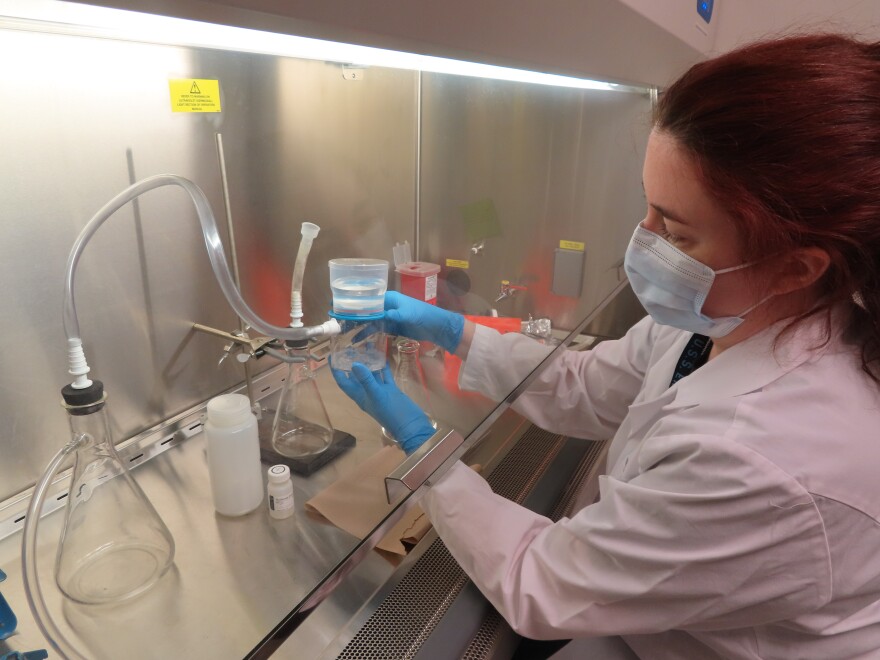COVID-19 testing clinics around the country are closing, and federal funding for free clinical testing is drying up. But wastewater surveillance could step in to play a crucial role in keeping track of where the virus is and just how much is really circulating out there, according to two professors in San Antonio who have been working on COVID wastewater surveillance since early in the pandemic.
Dr. Vikram Kapoor is an assistant professor in the School of Civil and Environmental Engineering and Construction Management at UTSA. He's a lead author on a study of COVID-19 in wastewater in Bexar County that found this type of surveillance is an effective tool to determine trends in infectious disease prevalence, and provide complementary information to clinical testing.
Kapoor also concluded that you could use wastewater surveillance to try to get ahead of COVID.
“We call it a leading indicator of surveillance because it can predict before the infection starts spreading. Before people start getting symptoms, before they get tested, they will start shedding the virus in the feces,” Kapoor said. “So if all the people who are infected, they're shedding the virus, there's a chance that we can pick up that signal days or even a week before they actually get tested.”

Scientists tracking COVID in wastewater in New York City found the same thing. Dr. Davida Smyth is now an associate professor of microbiology at Texas A & M San Antonio, but she was working in New York when the pandemic started.
They were checking the wastewater for COVID and then sequencing what they found to see what variants were there.
“I think the first evidence we had that it was really predictive was when Omicron came about,” Smyth said. “We actually were able to show that it was coming before (it showed up in) people. So it proved that it actually worked.“
Smyth thinks communities all around the world could use this technique to get ahead of new variants and potential surges, and to more efficiently and effectively fight the virus.
“The data from wastewater gives you maybe two weeks of lead time and what's actually going to appear in the human population,” she said. “So you can say to yourself, ‘Well, a new variant is coming,’ and you can actually look and see where it is in the city and say, Well, that's where it's emerging.”
Then, Smyth said, you could target mask-wearing and other interventions to that specific area, which would be more efficient and effective than locking down entire cities.
Smyth and Kapoor plan to work together to build a surveillance and sequencing program in South Texas, but so far it’s slow going. They’re having trouble getting access to new samples to test, and funding is always in short supply.
The Centers for Disease Control has set up a dashboard where states can report the results of their wastewater surveillance, but right now only about a dozen states are sending information. Texas is among them, but only a handful of plants in the Houston area are currently participating.
Related: Wastewater testing could help control COVID's spread. Why isn't it happening across America?

Copyright 2022 Texas Public Radio. To see more, visit Texas Public Radio.



